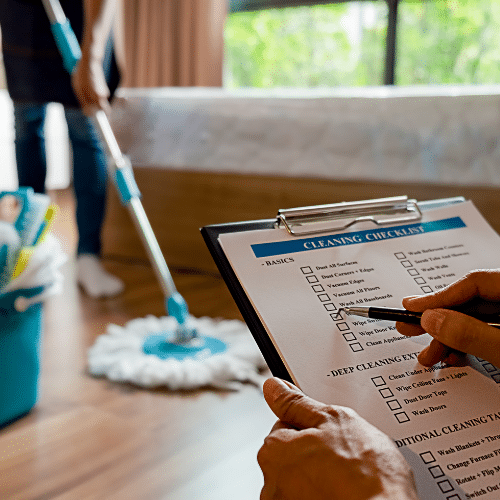The Comprehensive Guide to Hoarding Cleanup: Strategies and Compassion

Hoarding Cleanup is a complex disorder characterized by an individual’s persistent difficulty discarding or parting with possessions due to a perceived need to save them. This behavior can create cramped living conditions, where homes may be filled to capacity, with only narrow pathways winding through stacks of clutter. Recognizing the psychological aspects of hoarding is crucial before any cleanup process. It’s essential to approach hoarders with empathy and understanding to help them feel secure throughout the cleanup process.
Initial Assessment

The first step in hoarding cleanup is assessing the situation. This involves understanding the scale of hoarding from mild to severe and determining the types of items hoarded. Identifying hazards, such as structural damage to the home or health risks like mold and pests. This initial assessment will guide the cleanup strategy, ensuring that it addresses specific challenges effectively.
Building Trust and Support
Gaining the trust of someone who hoards is pivotal. Before beginning the cleanup, discuss the person’s needs and concerns. Offer reassurance that their possessions will be treated with respect and that they have control over the cleanup decisions. This psychological support is vital for a successful cleanup process and helps reduce the anxiety associated with parting with possessions.
Organizing the Cleanup
Once trust is established, the next step is organizing the cleanup. Start by categorizing items into three groups: keep, donate, and discard. Use clear, consistent labeling systems and involve the person in every decision to reinforce their sense of control. This phase might be slow, but patience is key to maintaining cooperation and progress.
Deep Cleaning
After sorting, the next stage involves deep cleaning the cleared areas. This includes dusting, vacuuming, and possibly hiring professional cleaners for areas that require special attention, like carpets and upholstery. Ensuring a thorough clean makes the space healthier and transforms the home, giving the individual a fresh start.
Maintaining the Momentum
Hoarding cleanup is not a one-time task but a prolonged battle against old habits. Regular check-ins and continued support are crucial to prevent relapse. Help set up a simple and manageable organizational system and encourage regular decluttering sessions to keep the space tidy and functional.
Professional Help: When to Call In Experts
In severe cases, professional help may be necessary. This includes professional organizers, mental health professionals, and even biohazard cleaning services if the situation warrants it. Knowing when to call in experts is crucial to handling the cleanup efficiently and safely, ensuring that all aspects of hoarding are addressed comprehensively.
Legal and Ethical Considerations
Knowing the legal implications of hoarding cleanup is important, particularly in severe cases involving authorities or legal action. Understanding local laws and regulations regarding hoarding is crucial. Additionally, always approach the cleanup with ethics in mind, ensuring the individual’s dignity is upheld throughout the process.
Community Resources and Support
No one has to face hoarding alone. Many communities offer resources for hoarders and their families, including support groups, therapy, and professional services tailored to hoarding cleanup. Utilizing these resources can provide additional support and ensure a more successful cleanup process.
